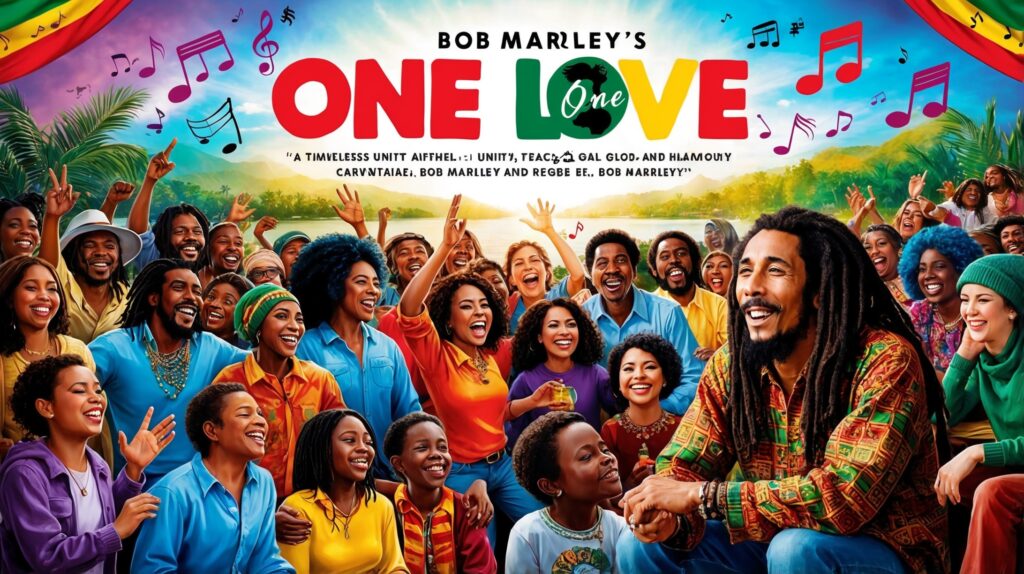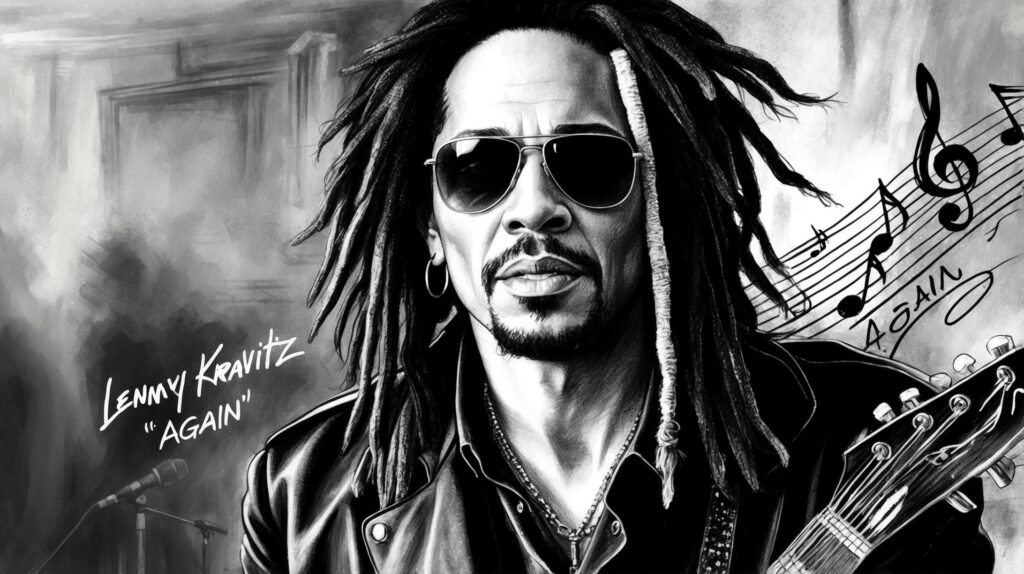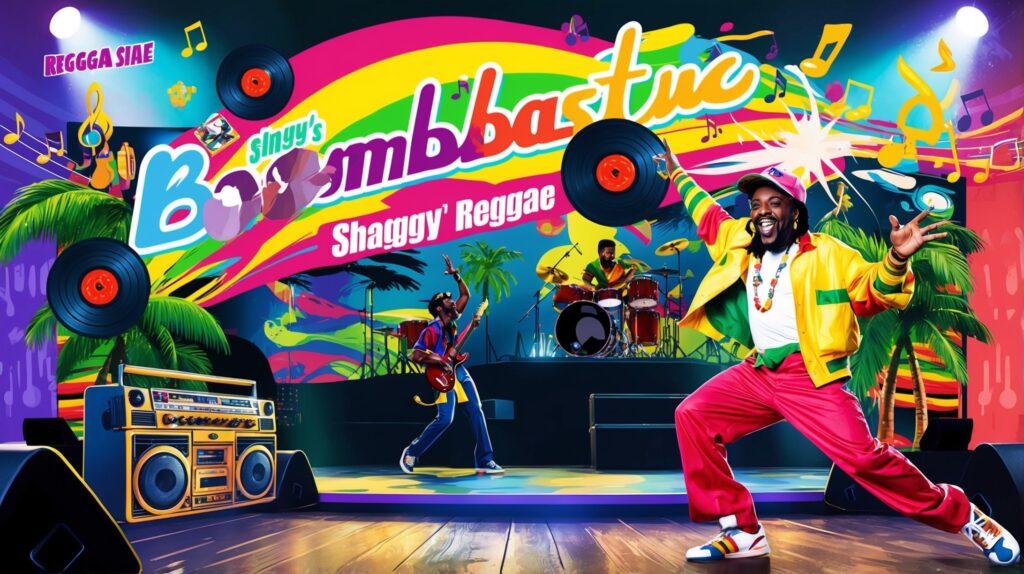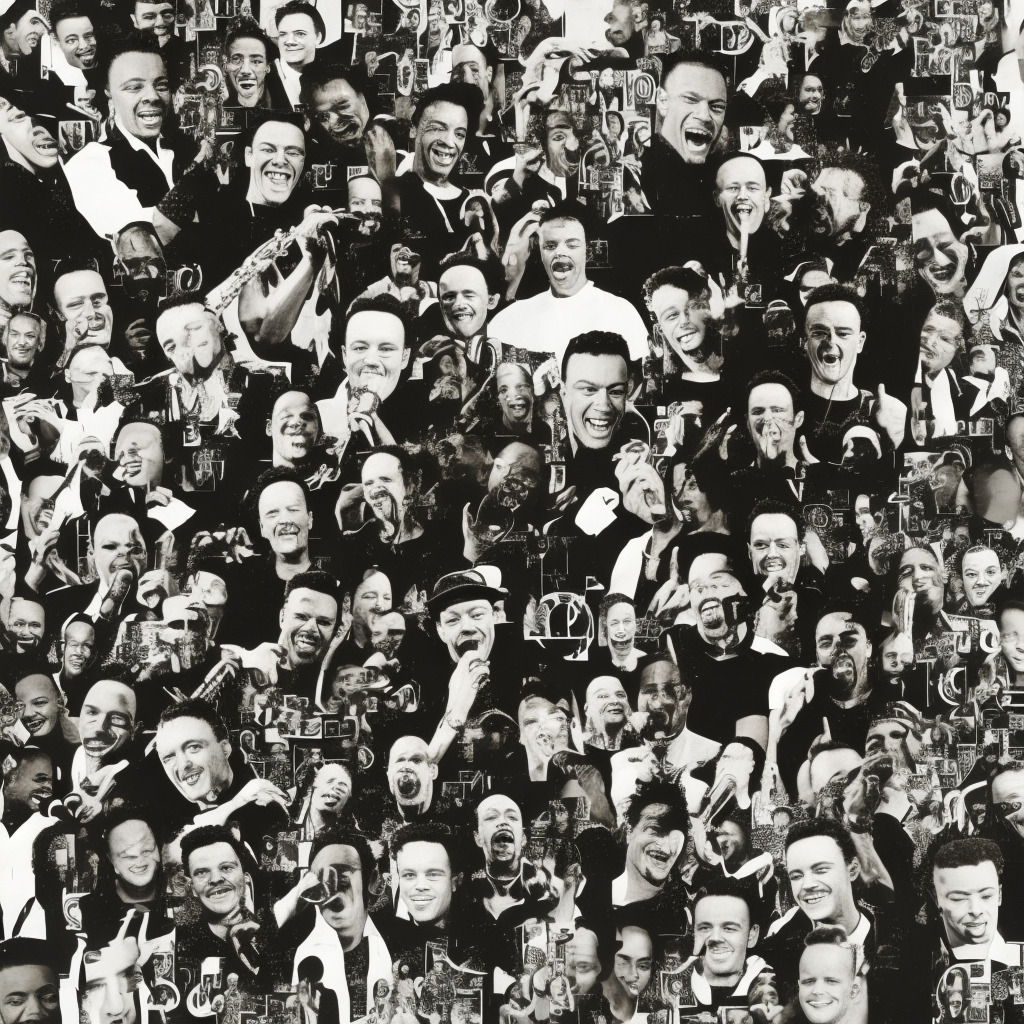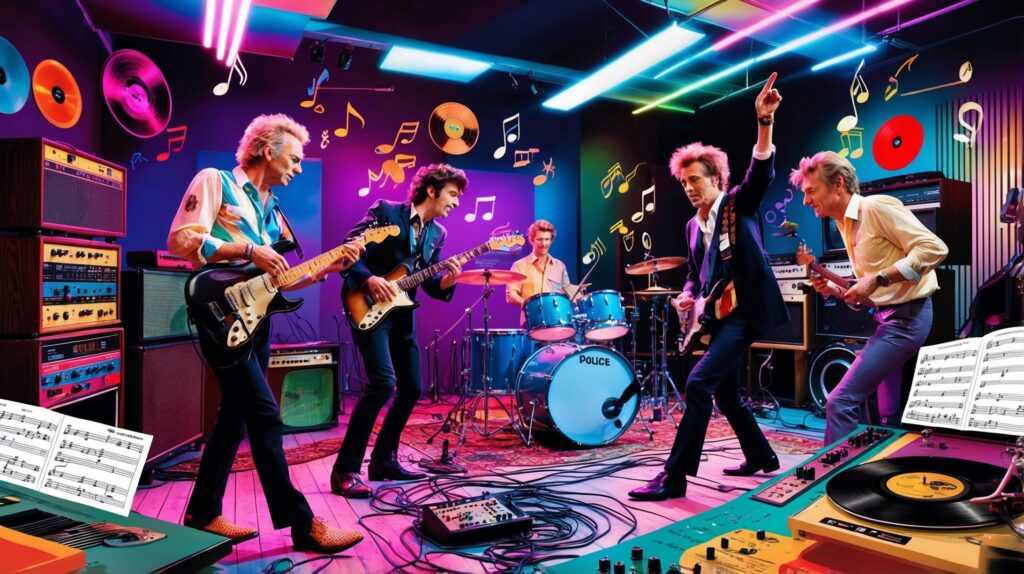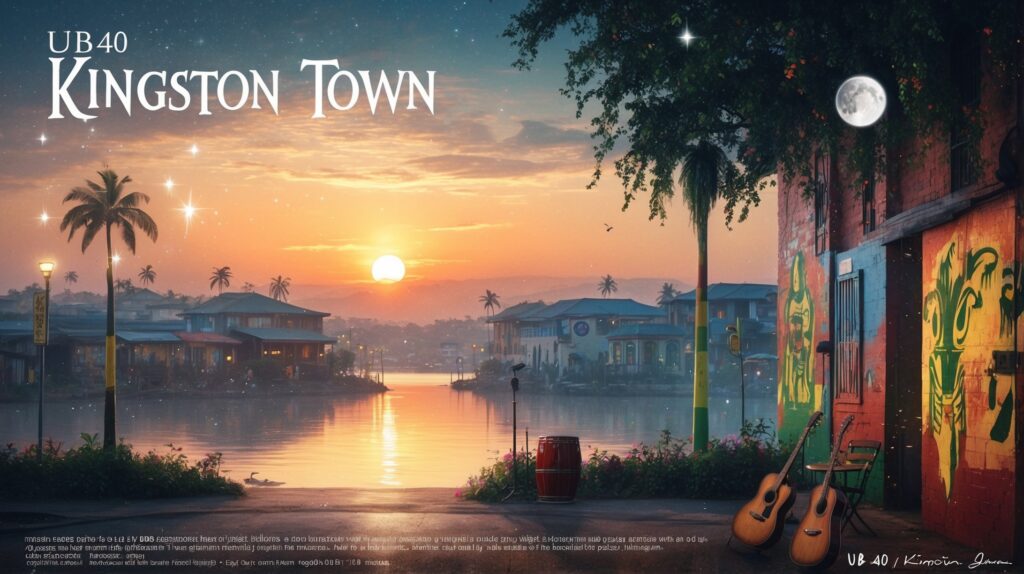Bob Marley: The Icon Behind ‘One Love’
Discover Bob Marley, the legend behind ‘One Love,’ and explore his journey from his early years in Jamaica to his impact on the global music scene. Learn about his role in shaping reggae and how ‘One Love’ contributed to this cultural icon’s legacy.
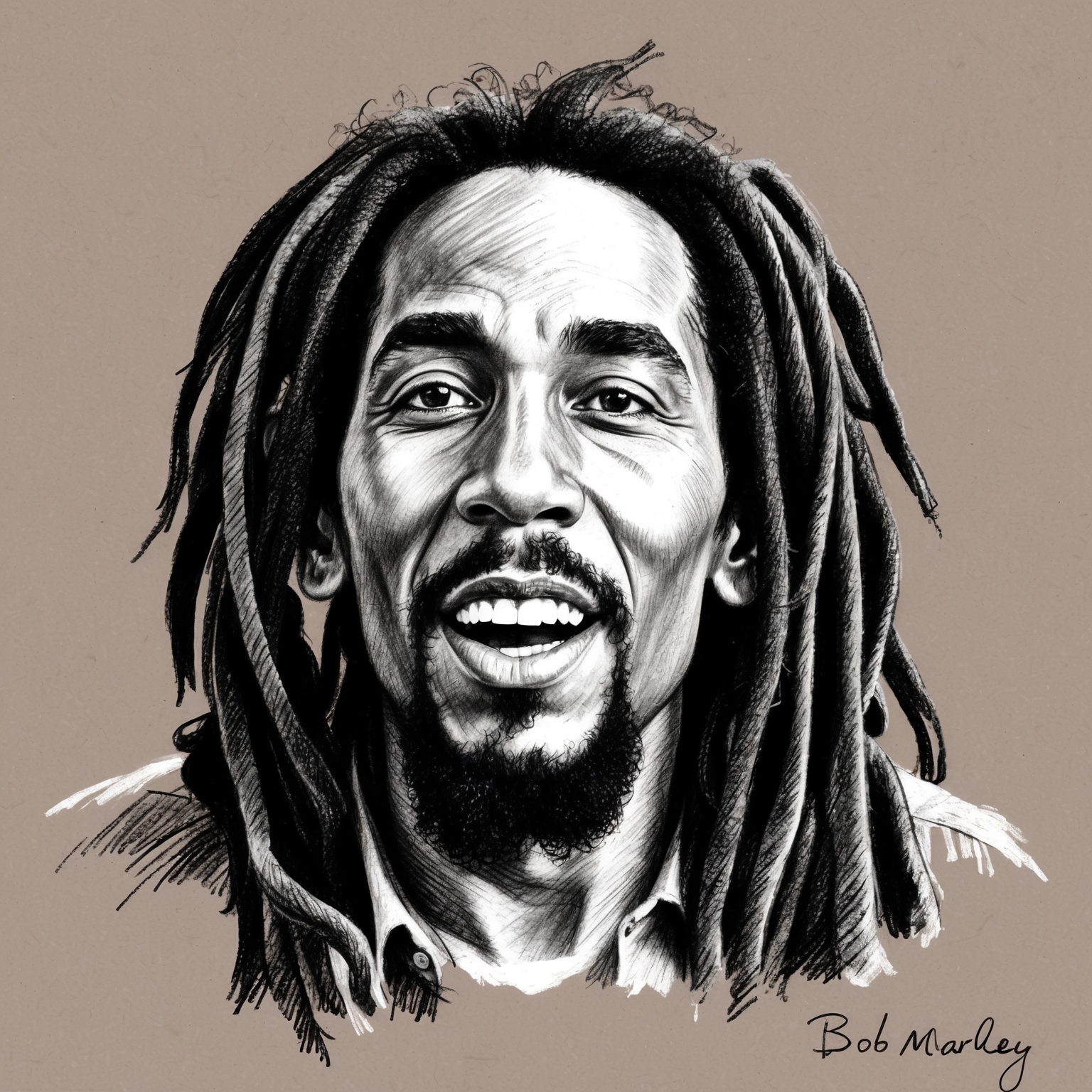
Bob Marley, revered as the face of reggae music, defines what it means to be a cultural and spiritual leader in the world of music. His song “One Love” is often seen as an anthem for peace and unity, underscoring Marley’s deep desire to promote love and harmony globally. Emerging from the vibrant and complex world of Jamaican music, Marley used his artistry not only to entertain but also to inspire social change. The significance of “One Love” in Marley’s career cannot be overstated, as it encapsulated both his musical genius and his heartfelt message towards universal love and acceptance.
Born in the rural village of Nine Mile, Jamaica, in 1945, Bob Marley’s early life was steeped in the roots of reggae. He began his career in 1963 with the formation of the Wailers, a band that included musicians such as Peter Tosh and Bunny Wailer. The band’s sound, a fusion of ska, rocksteady, and reggae, quickly captured the hearts of many. Marley’s journey from a fledgling musician to an international icon was marked by his commitment to authentic expression and cultural discourse, setting the stage for his historic impact on the music industry.
The time around the release of “One Love” was a period where Marley had firmly established himself as a leading figure in reggae. He collaborated with prominent artists and producers, and his ability to blend different musical elements with poignant lyrics contributed significantly to his wide appeal. The release of “One Love” resonated deeply within the music scene at the time, providing a voice for hope and unity amid global turmoil. This era marked a poignant chapter in Marley’s career — one where his music was a beacon of light to those amidst the struggles of the world.
Bob Marley: The Visionary Composer Behind ‘One Love’
Explore the genius of Bob Marley, the visionary composer behind ‘One Love.’ Discover his unique blend of reggae, social consciousness, and spiritual reflection, which shapes this timeless anthem.
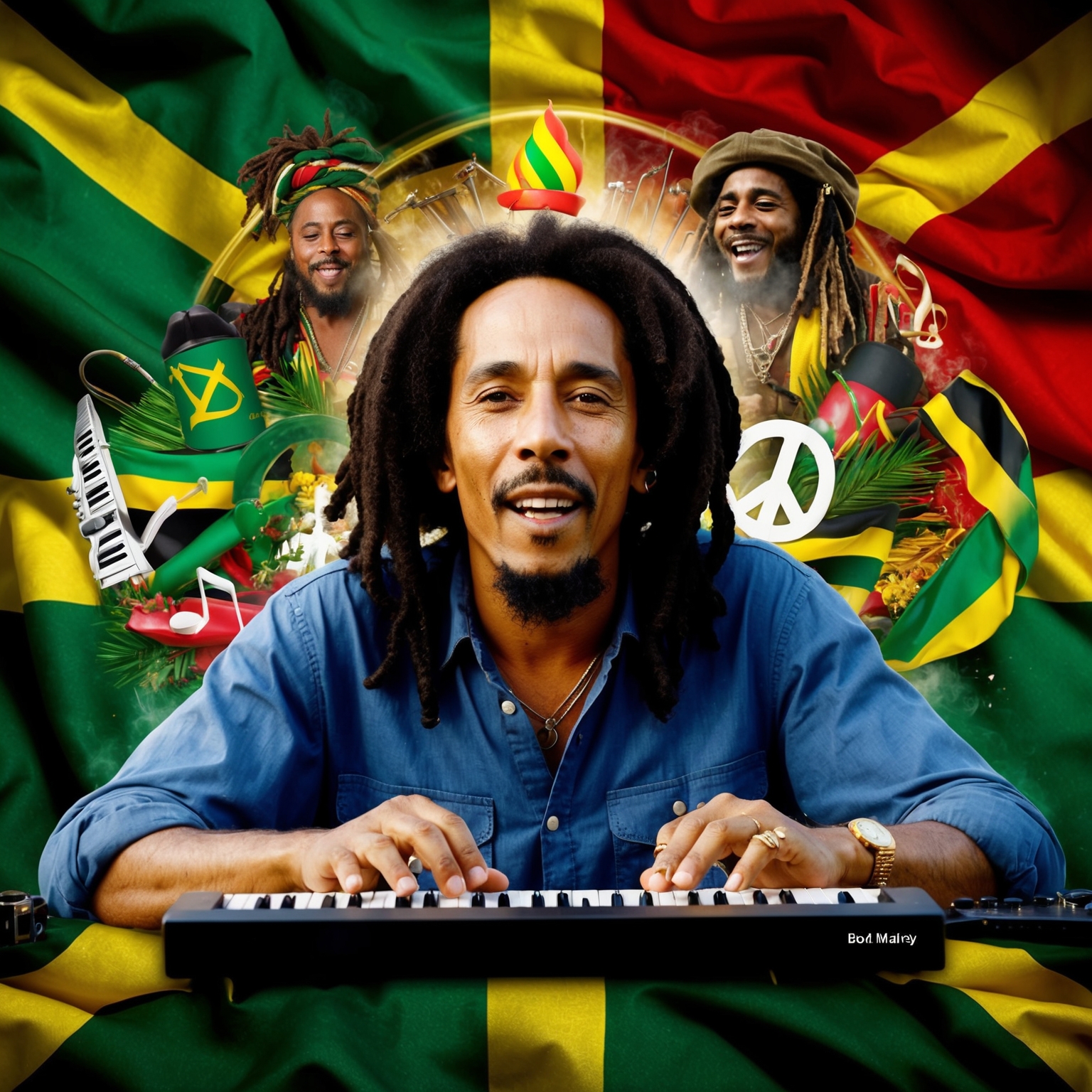
Bob Marley, the legendary Jamaican musician, not only penned the timeless anthem ‘One Love’ but also infused it with his unique blend of musical elements that have made it a global symbol of harmony and peace. Born in 1945 in Nine Mile, Jamaica, Marley started his musical journey with the formation of The Wailers in the early 1960s. His background was steeped in the rich tradition of reggae—an amalgamation of ska and rocksteady rhythms, underpinned by messages of unity and resilience. Marley’s upbringing and early exposure to the struggles of his community played a pivotal role in shaping his poignant lyrical content and musical style, characterized by a deep sense of social consciousness and spiritual reflection.
Marley’s music was deeply influenced by a variety of genres and movements. He drew inspiration not only from reggae pioneers like Toots and the Maytals but also from the broader landscape of African and R&B music that was popular during his formative years. This eclectic mix of influences is evident in ‘One Love,’ where uplifting rhythms are paired with a universally relatable message. Marley’s Rastafarian beliefs further colored his work, instilling it with themes of peace, love, and justice, making his compositions both a call to action and a source of solace.
‘One Love’ showcases the collaborative spirit that defined much of Marley’s career. While Marley headed the creation of the song, the contributions of his bandmates—particularly those of Peter Tosh and Bunny Wailer—cannot be overlooked. Their joint efforts enriched the texture and harmony of the track. Marley’s role, however, was central, as he meticulously crafted the song’s composition to ensure the musical arrangement perfectly captured the essence of its heartfelt lyrics. This interplay between music and message is a hallmark of Marley’s genius, allowing ‘One Love’ to resonate with listeners across generations.
The Lasting Impact and Celebrations of ‘One Love’
“One Love” by Bob Marley has been a beacon of unity, earning the BBC’s “Song of the Millennium” title and celebrated in countless covers, including a global rendition by Playing For Change. Its message continues to permeate through its inclusion in various films and campaigns.
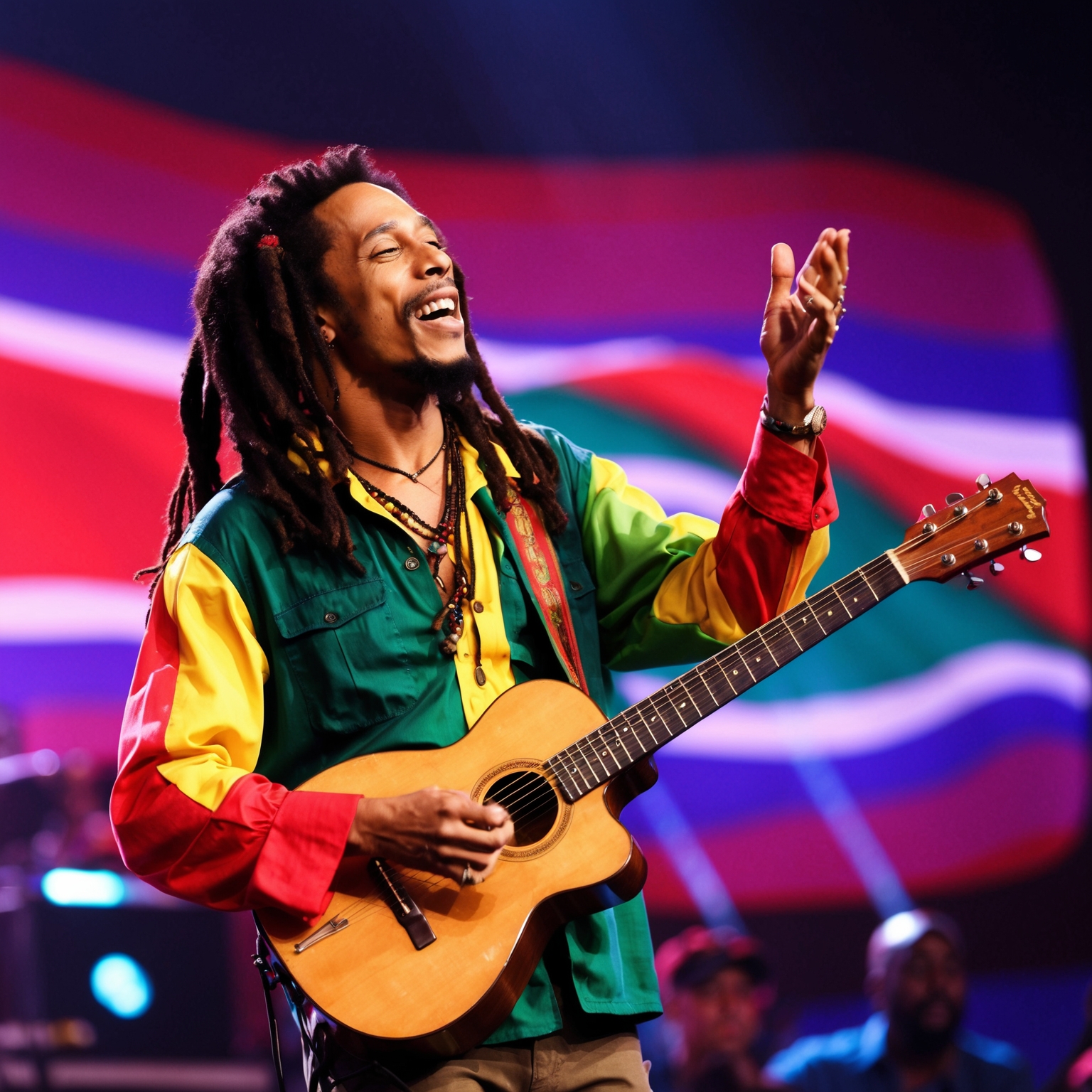
Awards and Accolades for Bob Marley’s iconic track “One Love” might not be as evident in the conventional sense of contemporary music awards, but its cultural significance transcends traditional accolades. Bob Marley’s contribution to music, and particularly with this song, has left an indelible mark worldwide. Although specific awards for “One Love” itself may not be commonly celebrated in award ceremonies, its significance is reflected in numerous honors given to Marley posthumously.
One testament to the song’s impact was when the BBC declared “One Love” as the “Song of the Millennium” in 1999, a recognition that celebrates its universal message of unity and togetherness. This classic reggae anthem continues to symbolize hope and harmony, echoing Bob Marley’s vision of bringing everyone together under one love.
Moreover, the song has been inducted into prestigious music compilations and anthologies, further cementing its status as a timeless classic. While music awards like Grammys and AMAs were rare during Bob Marley’s era, “One Love” has undoubtedly cemented its place in the hall of fame of influential tracks across the globe.
Notable Covers by other artists have kept “One Love” alive in various musical genres. Artists across generations and diverse musical backgrounds have covered this song, embracing Marley’s call for unity. A notable version was performed by the Playing For Change movement, where musicians from all over the world came together, recording their parts separately, creating a global rendition of Marley’s anthem. This and other covers have introduced “One Love” to new audiences, further amplifying its core message of love and unity.
Media Appearances provide a wider platform for the song’s spread and assimilation into popular culture. “One Love” has been featured in various films and television series, usually in scenes that emphasize hope, peace, or unity. Memorable appearances include its feature in the soundtrack of movies such as Marley & Me and The Wild Thornberrys Movie. It has also been used in advertising campaigns to evoke a sense of nostalgia and inclusive spirit, demonstrating its lasting appeal and resonance with audiences around the world.
Chart Success and Enduring Legacy
Discover the chart triumphs and timeless impact of Bob Marley’s “One Love,” which continues to captivate audiences globally and remains a cultural anthem.
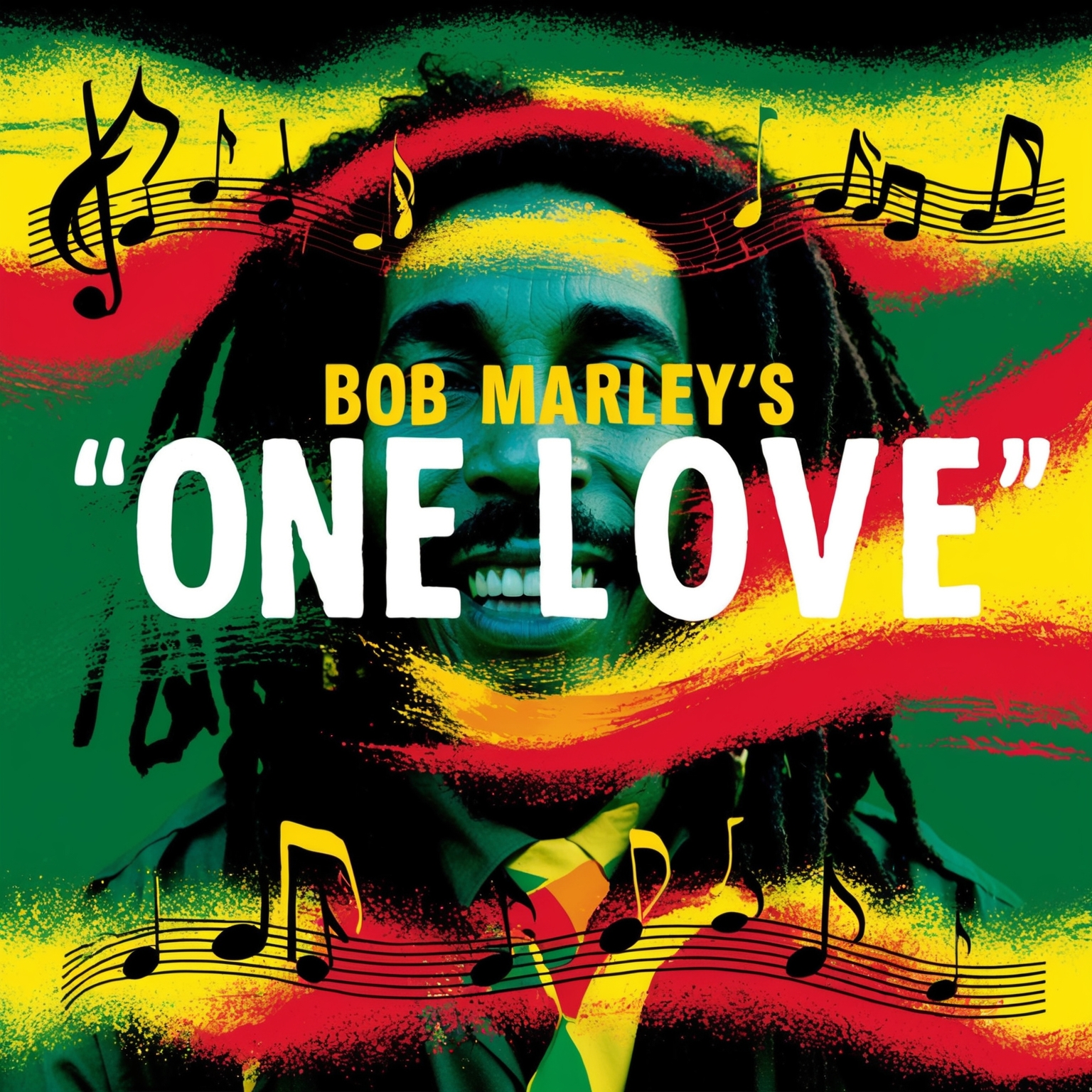
Bob Marley’s “One Love,” a timeless anthem of unity and hope, first made its mark in 1977 as part of his album “Exodus.” However, the song’s impact extended far beyond initial chart statistics. Upon its re-release in 1984 as part of the compilation album “Legend,” “One Love” climbed the charts once again, bringing Marley’s message to a new generation. Although it didn’t initially reach the top of the charts, it secured a strong position worldwide, notably reaching #5 in the UK Singles Chart. This impressive feat not only underscores its enduring appeal but also highlights how it resonated across diverse audiences.
Compared to other chart-topping reggae tracks of its era, “One Love” maintained a consistent presence, capturing listeners’ hearts with its harmonious melodies and powerful lyrics. Unlike many fleeting hits, its influence grew over time, bolstered by the resurgence of interest in reggae and world music in subsequent decades. Not only did this song solidify Bob Marley’s place as a global icon, but it also helped to introduce reggae to mainstream audiences, redefining its place in music culture.
The success of “One Love” was largely fueled by savvy marketing strategies from Marley’s label, which capitalized on the rising reggae movement. Promotional efforts included memorable performances and strategic media appearances, combined with an infectious energy that Marley brought to every stage. Critics praised the song for its universal message—a call to action that resonated with audiences seeking peace and community spirit. While the song itself didn’t initially garner major awards, its presence in popular culture paved the way for a plethora of accolades recognizing the enduring influence of Bob Marley’s music.
Social media and streaming platforms have given “One Love” a new life in the digital era. It remains a staple in playlists worldwide, still amassing millions of streams across platforms like Spotify and Apple Music. The song’s uplifting message often finds it included in campaigns for social change, underscoring its legacy as an anthem for unity. On social media, viral moments and campaigns celebrating love and peace often use “One Love” to soundtrack their message, continuing to embed it in the fabric of cultural consciousness.
Fans across generations have embraced “One Love,” with spirited discussions on fan forums regarding both personal impacts and its broader cultural significance. As a result, the song’s economic impact is notable as well, with continuous sales and streaming revenue further boosting Marley’s status and contributing to the success of subsequent tours and merchandise. “One Love” is a testament to the power of music to transcend time and connect people across borders. This chart success encapsulates more than mere numbers—it’s the embodiment of Marley’s vision and an enduring reminder of the transformative energy of reggae.
A Visual Ode to Harmony: The ‘One Love’ Music Video
Explore the visual interpretations of Bob Marley’s ‘One Love’, from fan videos to vibrant live performances, that bolster its message of unity.
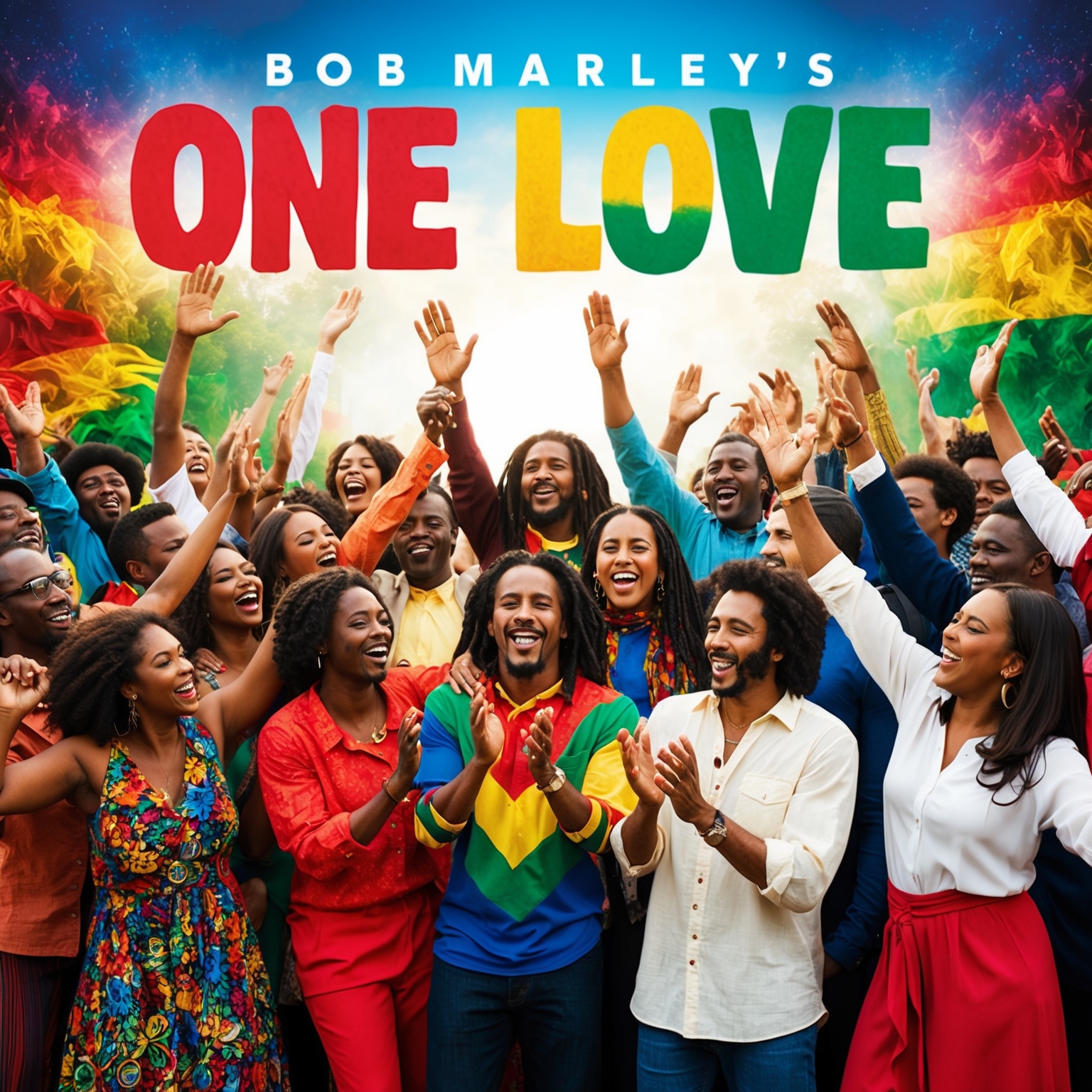
A Visual Ode to Harmony: The ‘One Love’ Music Video
The music video for Bob Marley’s iconic song ‘One Love’ serves as a vibrant visual companion to the track’s message of unity and togetherness. Although there is no official conceptual music video for ‘One Love’, there are several notable fan-made videos and live performance recordings that capture the essence of Marley’s vision. These interpretations have played a crucial role in keeping the spirit of the song alive in the visual medium.
Fan videos often portray a tapestry of humanity – from footage of diverse groups of people uniting in dance, to historic moments of peace and reconciliation. These interpretations resonate deeply with the song’s call for global harmony and contribute significantly to its timeless appeal. In particular, live versions featuring Marley and The Wailers are highly cherished. These recordings showcase Marley’s charismatic stage presence, capturing his passion and sincerity in delivering the song’s poignant message.
Critically, these video tributes have been well-received, as they enhance the listening experience by providing a visual narrative that complements the lyrics’ themes of love and unity. While there were no celebrity cameos or grand production techniques involved, the simplicity and authenticity of these videos have been lauded. Such efforts have helped ensure that ‘One Love’ continues to reach new generations, reminding them of Bob Marley’s enduring legacy.
The Intricate Composition of ‘One Love’
Explore the intricate musical composition of Bob Marley’s song ‘One Love’, highlighting its key structure, melody, harmony, and the evolution of its thematic elements in the context of Marley’s career.
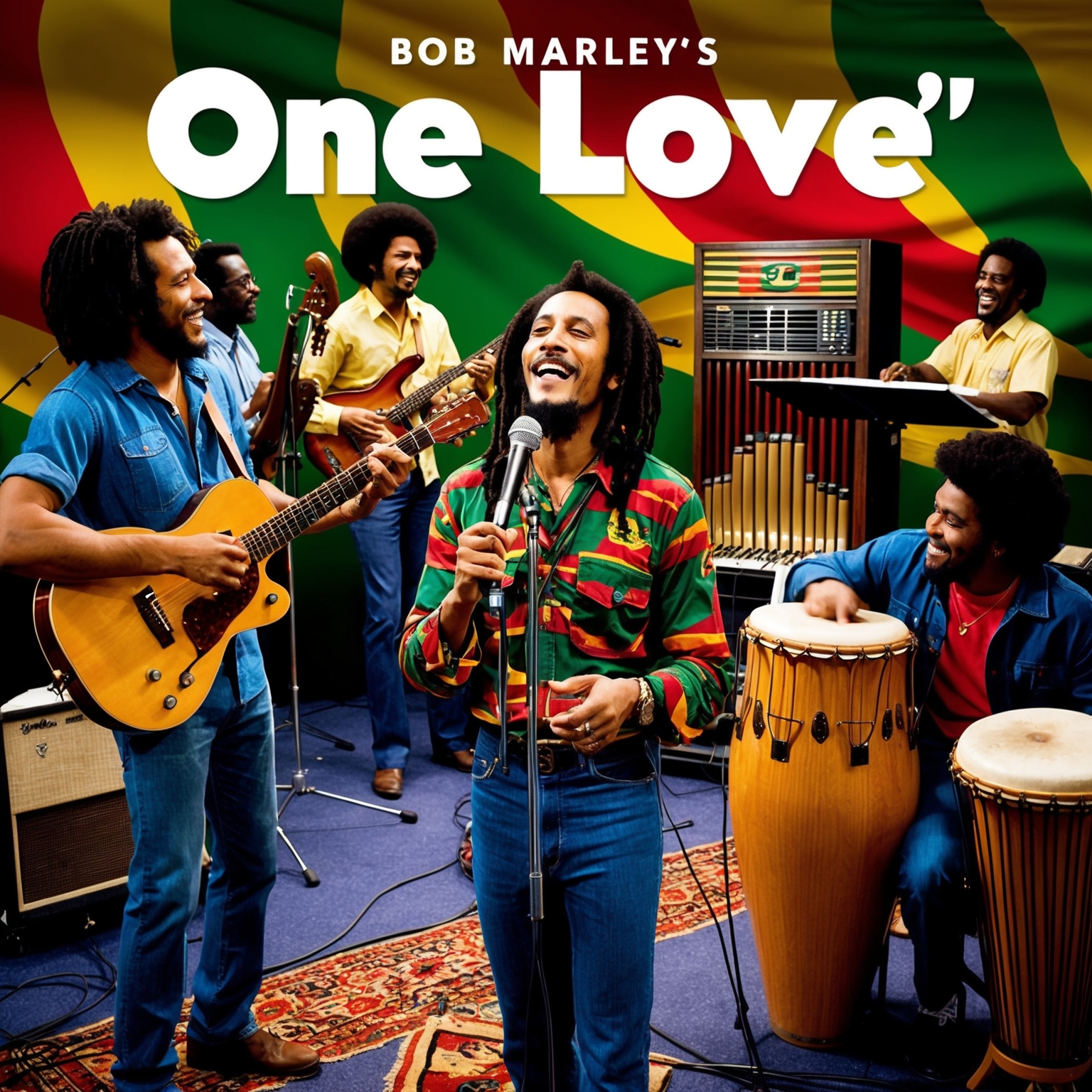
The song **’One Love’** by Bob Marley is characterized by its captivating yet straightforward musical structure that embodies the spirit of unity and peace. Written in the key of B major, the song features a moderate tempo that is typical of Marley’s reggae genre. The chord progression is relatively simple, revolving around primary chords like B, E, and F#, which creates a stable and uplifting harmony that encourages listeners to reflect on the message of universal love and togetherness.
The melody in **’One Love’** carries both uplifting and soothing qualities, a hallmark of Marley’s style. The structured rhythm follows a distinct reggae pattern, underpinned by the characteristic ‘one drop’ beat, where the emphasis is placed on the third beat of the measure, creating a laid-back yet engaging feel. The harmony is enriched by the use of vocal harmonization, particularly in the chorus, which elevates the communal and rallying cry of the song’s message.
A variety of instruments contribute to the song’s unique sound. The guitar, played in a staccato rhythm, defines the reggae vibe, while the bass guitar offers a grounding and rhythmic backbone. The presence of the Hammond organ, augmented with rocksteady grooves, adds a soulful layer to the composition. The percussion, inclusive of bongos and congas, underscores the song’s rhythmic complexity and Caribbean roots.
Comparing **’One Love’** within the context of Bob Marley’s discography reveals a progression towards more socially and politically charged themes. Earlier works such as ‘Soul Rebel’ had a stronger focus on rebellious imagery and self-exploration, indicative of Marley’s early career with the Wailers. By the time ‘One Love’ was conceptualized, there was a definitive shift towards promoting messages of global unity and peace. This song marks a pivotal moment in Marley’s journey as an artist, showcasing both his thematic maturity and his ability to influence global thinking through music.
Recorded at the renowned Tuff Gong Studios in Jamaica, **’One Love’** exemplifies the renowned reggae production aesthetic guided by both Marley and producer Chris Blackwell. Anecdotes from the recording sessions highlight the relaxed yet purposeful environment Marley fostered, aimed at capturing the essence of this universal anthem. The camaraderie among musicians and the focus on heartfelt expression produced a timeless piece that resonates with people across generations.
Exploring the Timeless Unity in Marley’s Words
Bob Marley’s “One Love” is an iconic anthem promoting unity and peace. The song’s universal appeal lies in its straightforward yet profound message of togetherness, spiritual insight, and social harmony. With its repetitive refrain, collective narrative style, and spiritual undertones, Marley’s lyrics invite listeners into a shared quest for a more harmonious world.
Let’s get together and feel all right
Hear the children crying (one love)
Hear the children crying (one heart)
Sayin’, “Give thanks and praise to
The Lord and I will feel all right”
Sayin’, “Let’s get together and feel all right”
Whoa, whoa, whoa, whoa
Let them all pass all their dirty remarks (one love)
…
******* This Lyrics is NOT for Commercial use *******
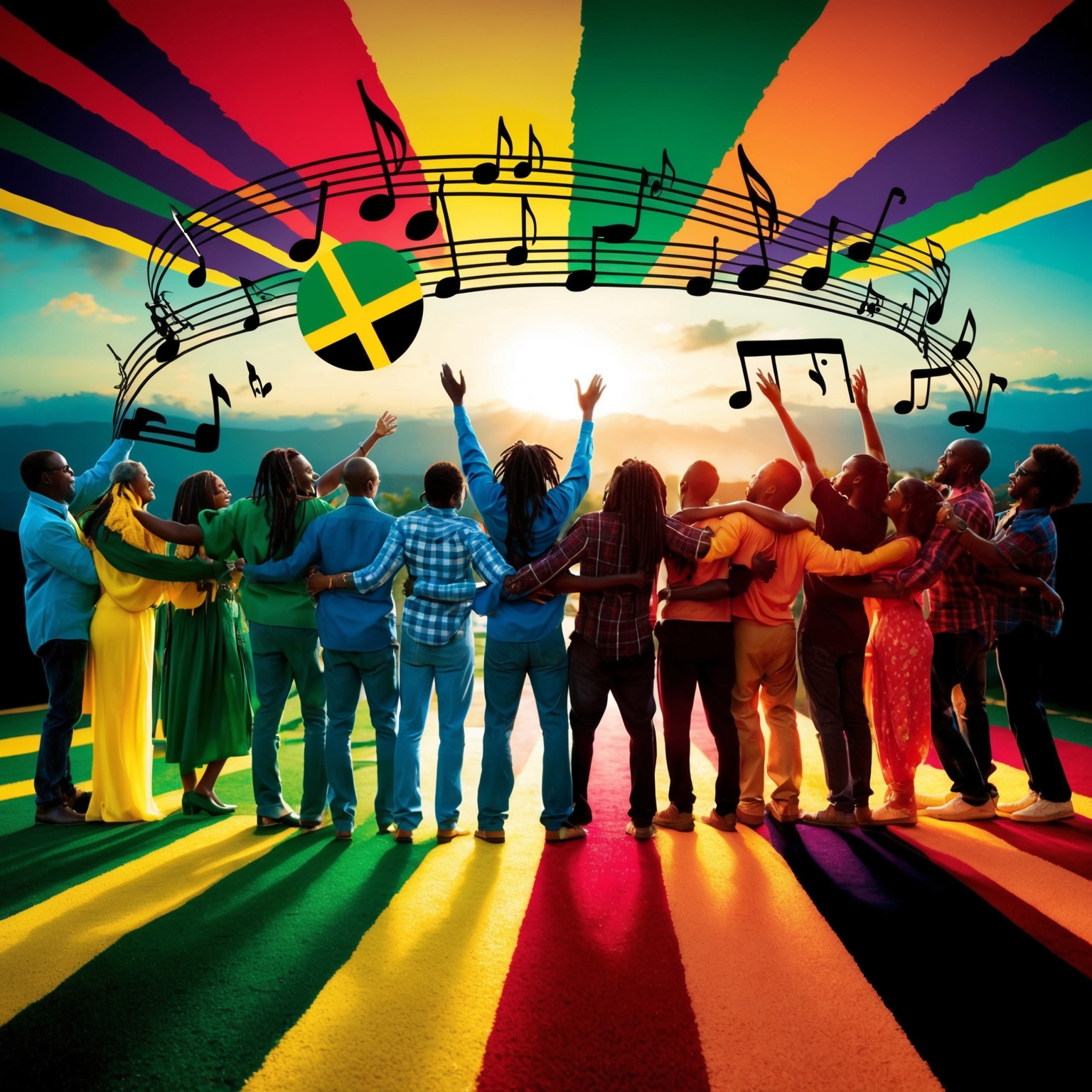 Lyrical Themes and Messages: Bob Marley’s “One Love” is a profound anthem celebrating unity, peace, and acceptance that resonates across generations. The song’s central theme revolves around a call for universal love and harmony, urging people to come together as one. It reflects both personal and social ideals, striving for a world without conflict or prejudice. Released during a period of significant social and political turmoil, Marley’s message of togetherness and spiritual transcendence offered solace and hope, solidifying his legacy as a musician with a mission to spread love.
Lyrical Themes and Messages: Bob Marley’s “One Love” is a profound anthem celebrating unity, peace, and acceptance that resonates across generations. The song’s central theme revolves around a call for universal love and harmony, urging people to come together as one. It reflects both personal and social ideals, striving for a world without conflict or prejudice. Released during a period of significant social and political turmoil, Marley’s message of togetherness and spiritual transcendence offered solace and hope, solidifying his legacy as a musician with a mission to spread love.
Narrative and Storytelling: The narrative of “One Love” is straightforward yet powerful, narrated from a collective perspective that invites everyone to join in this harmonious gathering. By addressing his audience directly in a communal voice, Marley creates an inclusive atmosphere, transforming his message into a universal appeal. This first-person collective perspective amplifies the song’s impact, making listeners feel like they are part of a global call for unity and peace.
Use of Literary Devices: Marley’s use of repetition, particularly with the phrases “one love” and “one heart,” reinforces the message, making it both memorable and impactful. The lyrics employ heartfelt simplicity, allowing their profound meanings to shine through without convoluted language. The clever use of rhyme and rhythm enhances the emotional depth of the song, making it as soulful as it is singable. These lyrical elements blend flawlessly with reggae’s soothing beats, creating an unforgettable musical experience.
Comparative Analysis with Other Works: Unlike some of Marley’s other songs, which delve into sociopolitical commentary, “One Love” stands out as a more overt plea for unity and spiritual enlightenment. Compared to tracks like “Get Up, Stand Up,” which advocate for political activism, “One Love” focuses on universal love as the ultimate solution, painting a broader vision for societal harmony.
Cultural and Social References: “One Love” incorporates cultural and spiritual elements, subtly referencing religious themes such as giving thanks to the Lord. These references enrich the song’s cultural tapestry, resonating deeply with audiences familiar with reggae’s roots in Jamaican Rastafarian culture. The spiritual undertones promote a universal message that transcends religious boundaries.
Emotional Impact and Relatability: The lyrics of “One Love” evoke feelings of joy, hope, and a shared longing for peace, making it relatable to anyone yearning for a better world. Its simplicity ensures that the message is accessible, permeating through diverse cultures and generations, which has contributed to its lasting success.
Language and Wordplay: Marley’s choice of language is straightforward yet impactful, employing simple words to convey profound messages. This choice ensures broad accessibility, allowing the song’s heartfelt call for unity to resonate universally. The emotional sincerity of his word choice deepens the listener’s connection to the song.
🎶 Did you know Bob Marley’s One Love was voted Song of the Millennium by the BBC? 🌍 A timeless anthem for unity! #BobMarley #OneLove #ReggaeVibes tinyurl.com/mrywcurf
Click to Tweet

